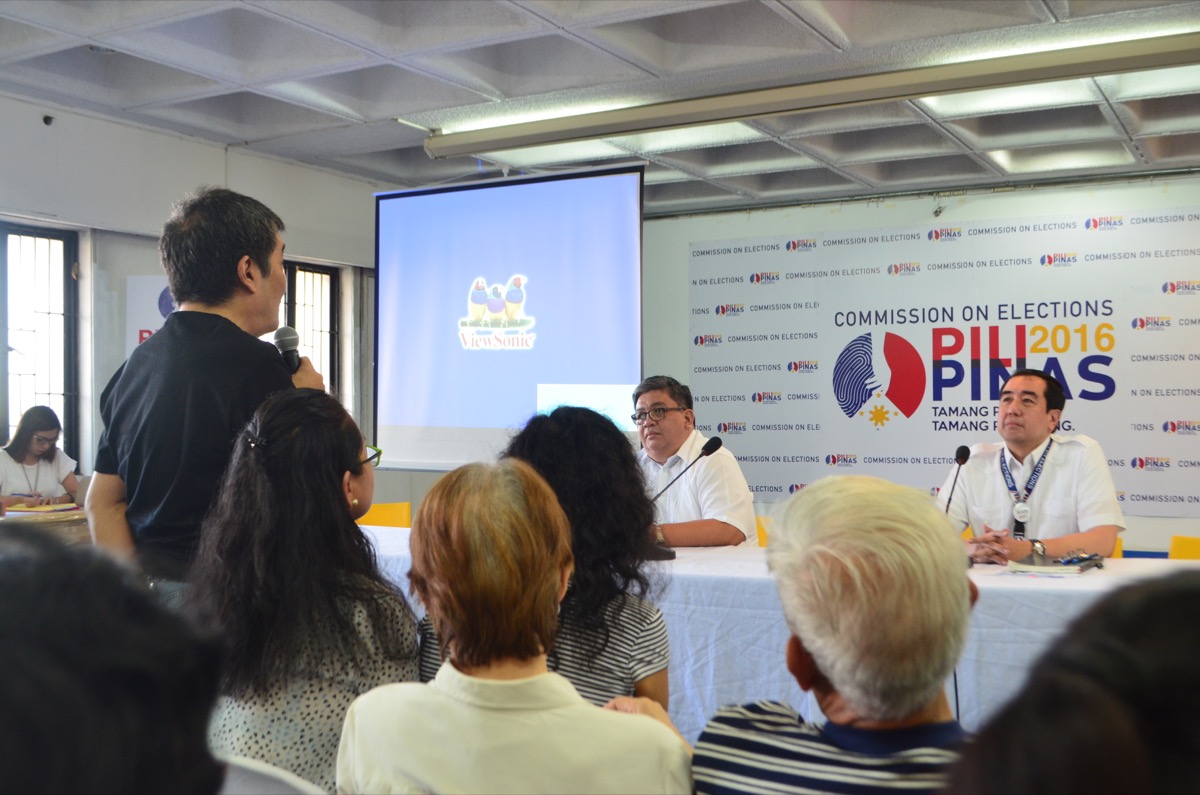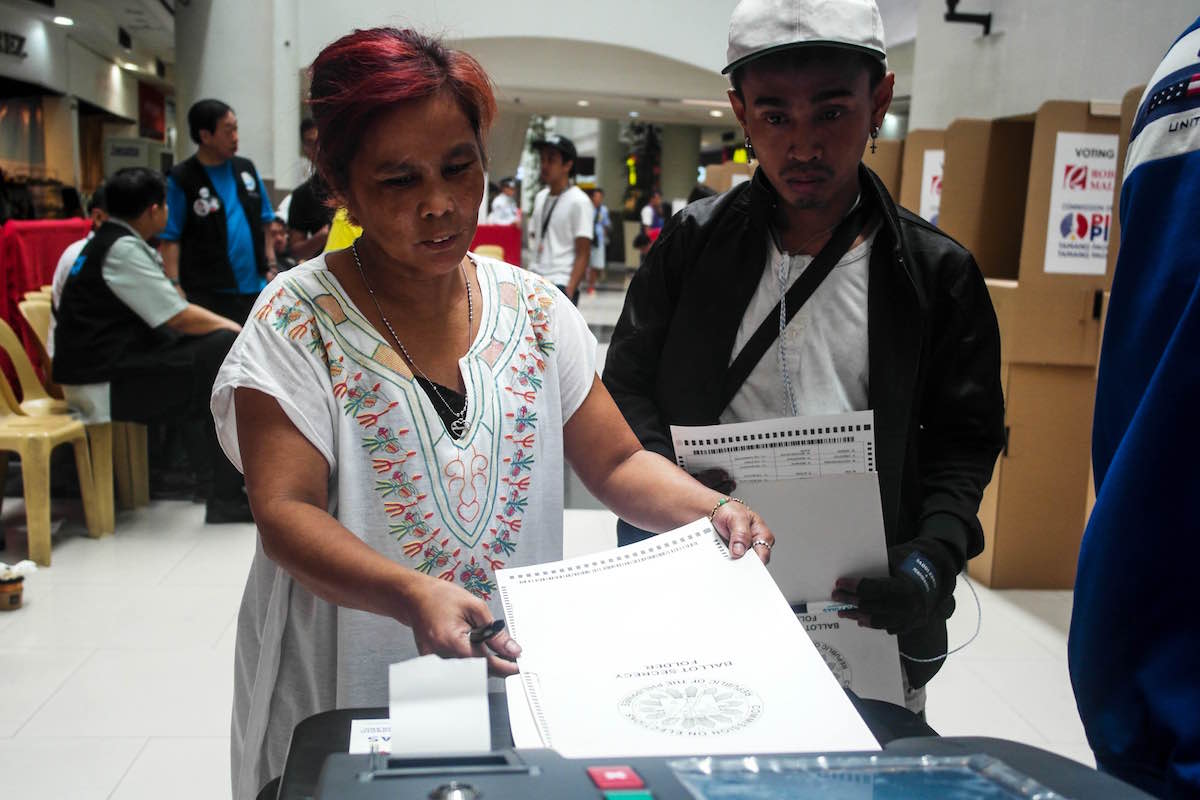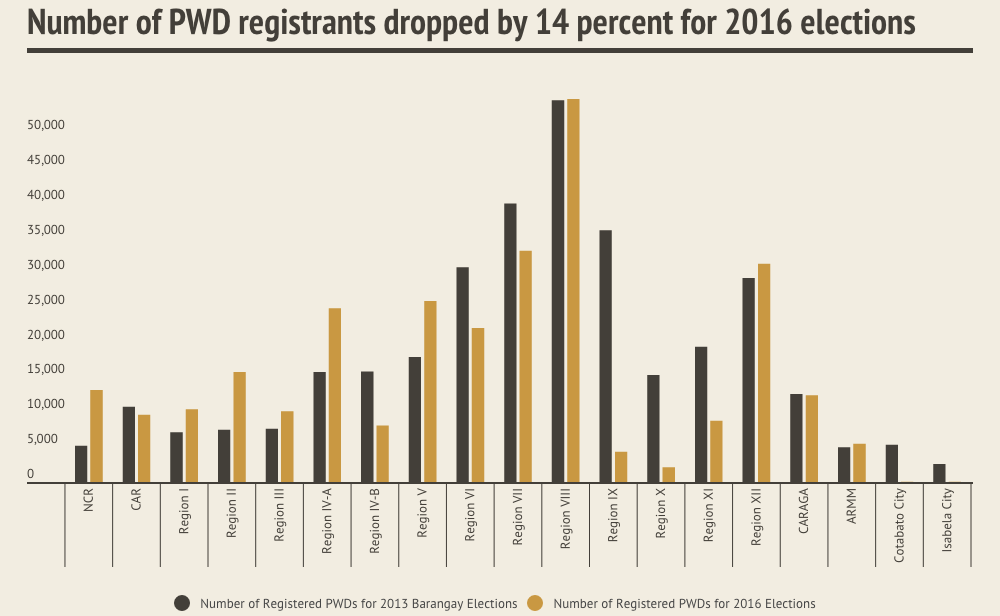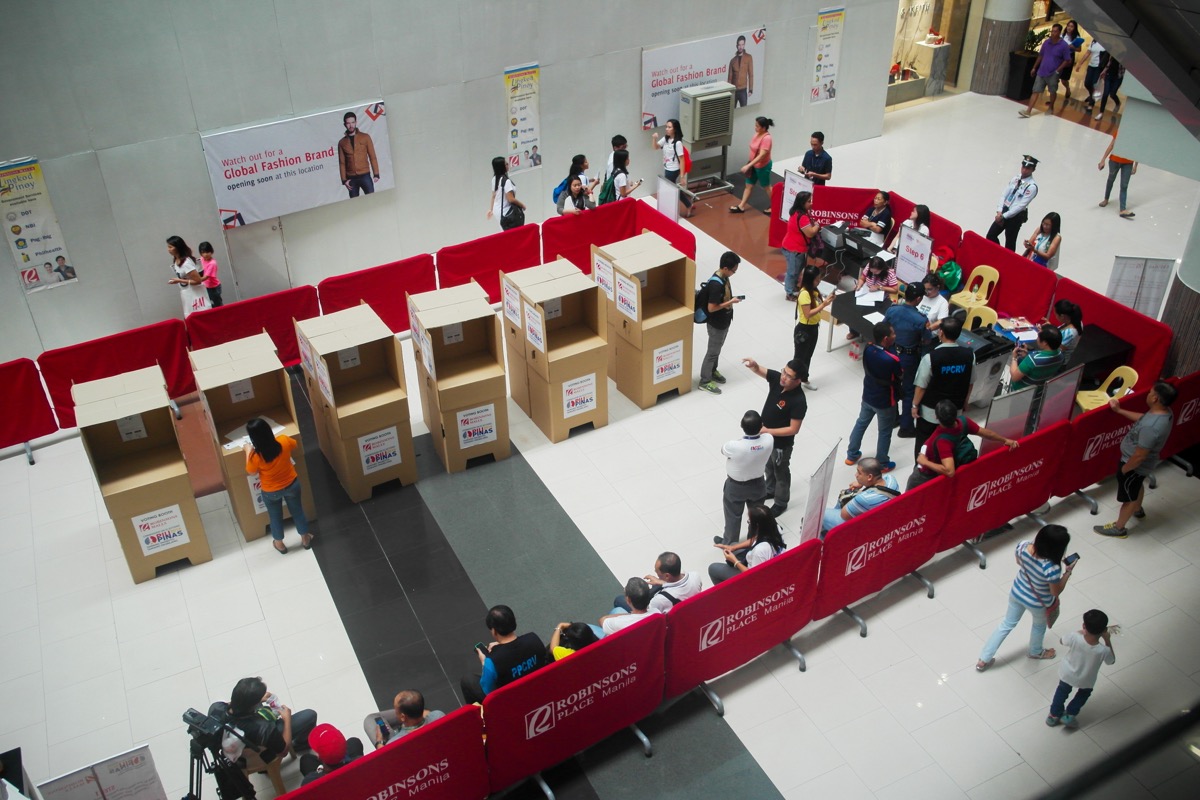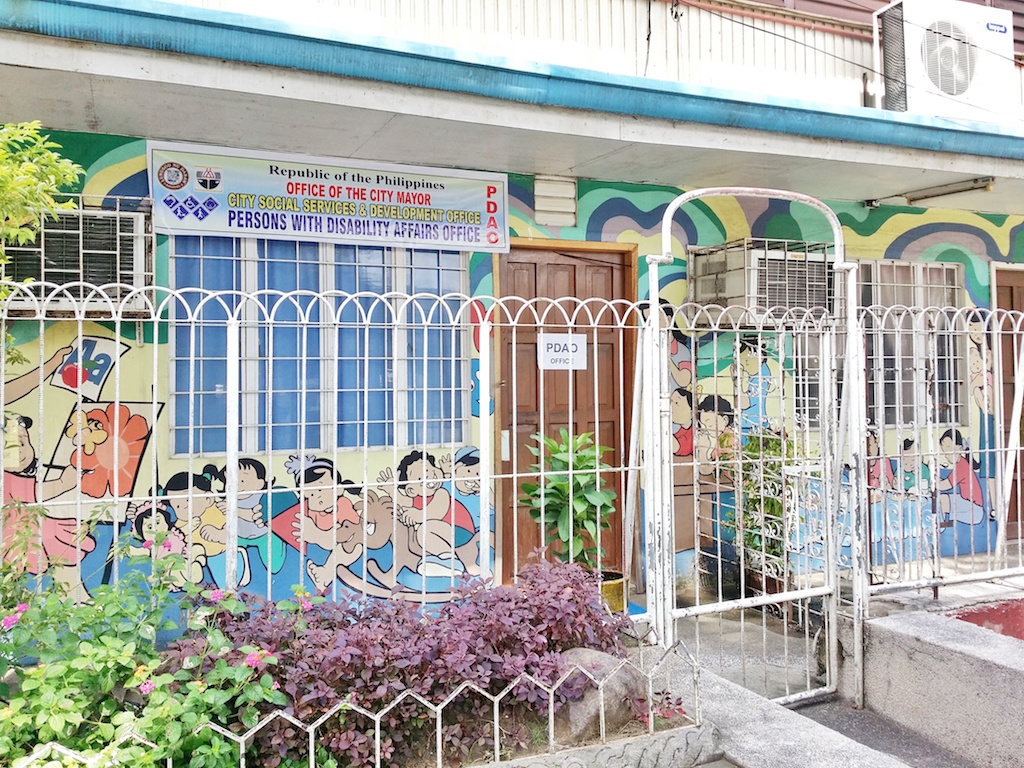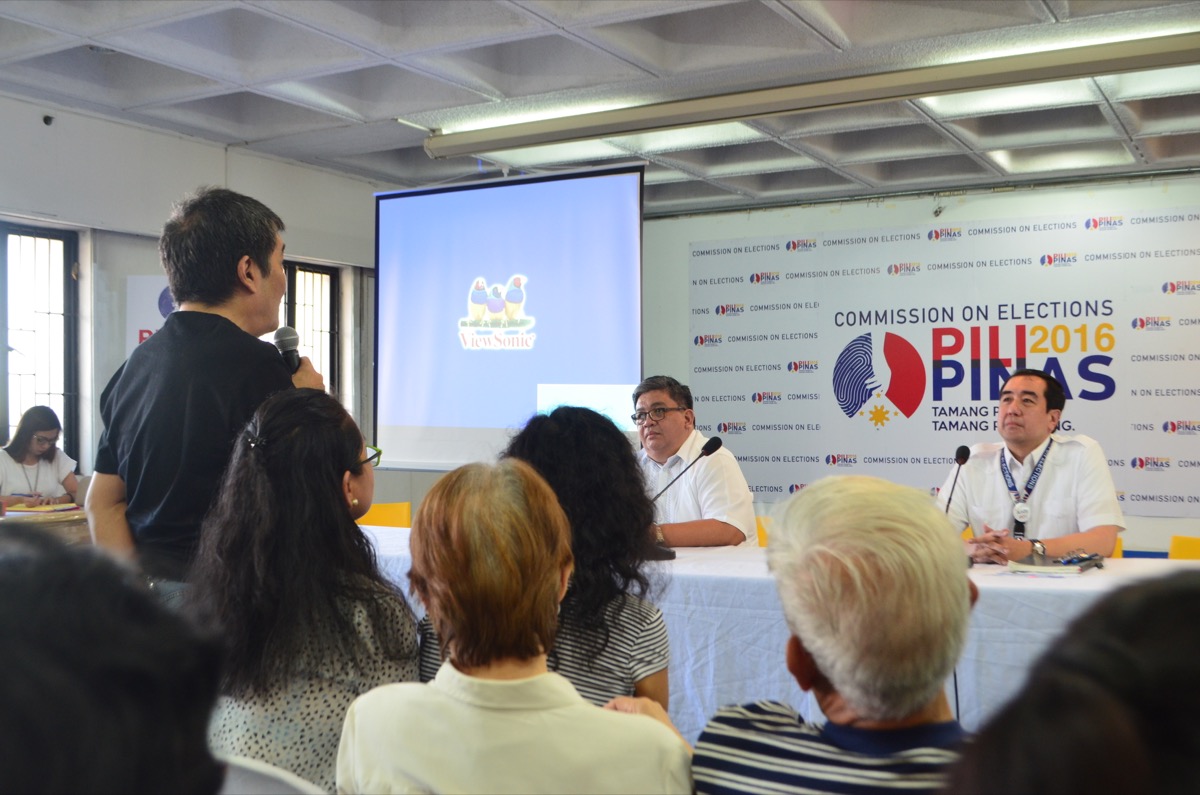
By VERLIE Q. RETULIN
MALL voting may provide ease and convenience to persons with disabilities (PWDs) and senior citizens, but it is not the proper solution to address accessibility problems, Commission on Elections (Comelec) chair Andres Bautista said on Monday.
During the second public hearing on the transfer of certain polling precincts to malls, Bautista said those who will be voting in malls will constitute only a small fraction of the entire electorate, and it is the job of the Comelec to make schools more PWD-friendly.
“Tama kayo: kailangan din nating ayusin ang ating mga eskwelahan (You’re right: we also have to make our schools accessible). Just because we are doing this consultation on mall voting does not mean that we are not focusing on our schools because they still constitute a big, big majority of our polling centers,” Bautista said.
[box style=”0″]
Comelec Commissioner Luie Tito Guia, who chairs the Committee on the Vulnerable Sectors, says the access audit on schools will push through, and will be participated in by various government agencies and the United Architects of the Philippines (UAP).
Architect Jimmy Silva of UAP saw the importance of the audit, saying each public school is useful for three different purposes: as bedrock of inclusive education, as a polling center during election, and as an evacuation center in times of disaster.
Guidelines have been established and checklists have already been disseminated to participating UAP chapters, he said.
Silva also said the access audit will go beyond this year’s elections. “It’s not going to stop in 2016; it’s going to continue until we see its completion in 2019.”
In 2014, the human rights lawyers group Upholding Life and Nature (ULAN) audited the accessibility of schools in 17 towns in the country. (See Most schools used as voting precincts not PWD-friendly, audit shows)
[/box]
Bautista’s statement drew support from the National Council on Disability Affairs (NCDA).
Carmen Zubiaga, executive director of NCDA, said while they support mall voting, there are places, especially in the provinces, with no malls.
She challenged local election officers (EOs) to be responsible for their voters with disability, coordinate with other government agencies, and be creative in finding ways to enable everyone to vote.
“I would like to put the burden to all election officers. Sila po talaga yung dapat na nag-iisip kung paano gagawing accessible ang polling places … kung paano nila pabobotohin ang mga may kapansanan sa kanilang jurisdiction. Bigyan natin ng pag-iisip kung paano ito magagawa (They should be the ones to come up with ideas on how polling places can be made accessible, how PWDs in their jurisdiction can be allowed to vote. Let’s give a thought on how this shall be done),” Zubiaga said.
She said poll officials should be given time to assess which areas in their respective municipalities can be transformed into voting centers and accessible polling places, suggesting the use of gymnasiums and basketball courts.
The suggestion, however, drew mixed reactions from the EOs who were also present during the public hearing.
“Much as we want to do what you’re suggesting … there is a process that needs to be followed. We cannot just transfer a polling place in order to accommodate PWDs because we will be charged with illegal transfer of voting center. Plus we also have to consider the security,” one of them said.
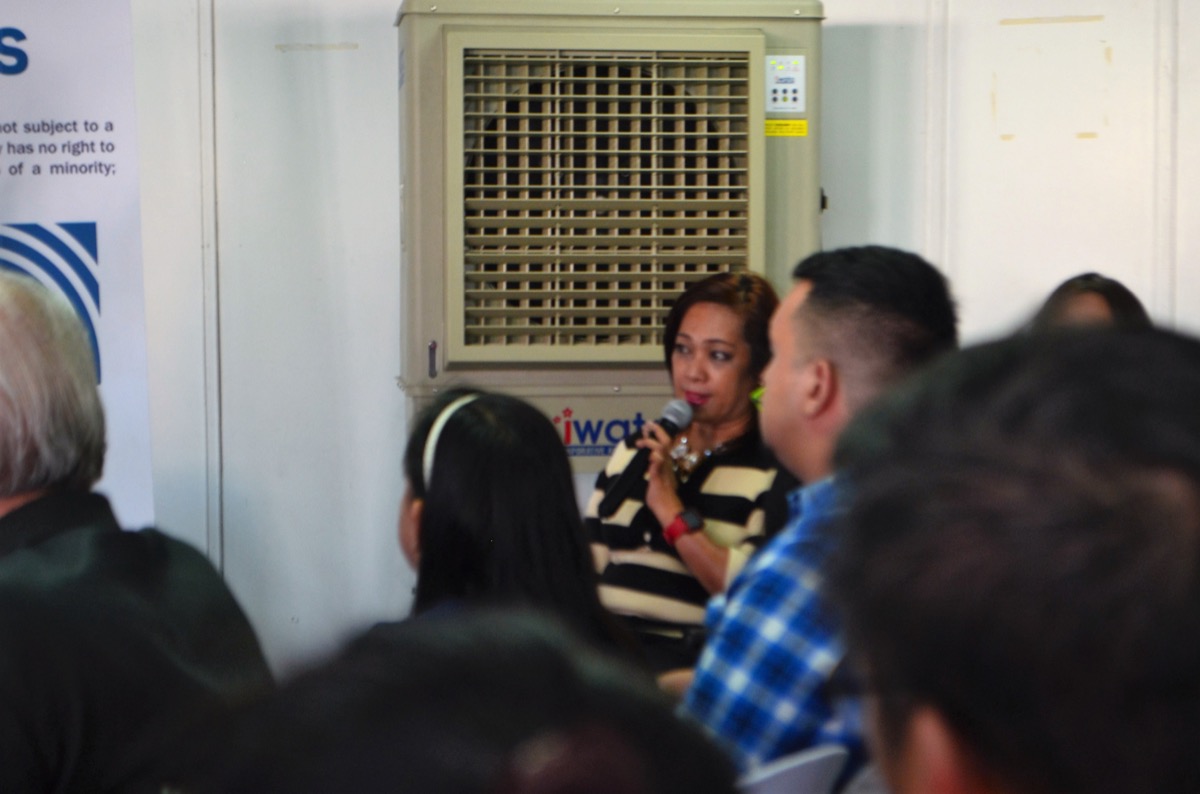
Zubiaga expressed their willingness to work with the Commission, provided that the NCDA will be informed of the problem firsthand.
“Kung yan naman ay polisiya, pwede naman nating baguhin yan. Dahil sino bang gumawa ng polisiya na yan? Di ba tayo rin? Ano yung mga policies na barrier to the fulfillment of the rights of persons wth disabilities? Dapat kasi hina-harmonize na natin yan and we really have to take it seriously – the rights of PWDs to suffrage. Hindi na pwede yang porke’t PWD hindi mo na pabobotohin, idi-disregard mo nalang. For the longest time iyan ang [sinasabi] sa PWD sector,” she argued.
(That may be the policy, but it can be amended. After all, we created the policy. Which policies pose a barrier to the fulfillment of the rights of persons with disability? We should harmonize them (with the others), and we really have to take it seriously–the PWDs’ right to suffrage. A PWD should not be disregarded and be deprived of his/her right to vote. For the longest time, that is what the sector has been told).
Zubiaga believes that an accessible polling place is a progressive realization that does not happen overnight. Guia agrees, saying “As Comelec, we want to be educated by the sector.”
The Comelec is scheduled to release a resolution on mall voting next week.
Based on a recent survey by the Social Weather Stations (SWS) which has yet to be officially released, respondents found the idea of mall-based voting moderately favorable, with 61 percent saying they strongly agree and 30 percent saying they somewhat agree with its implementation.
If approved, the precincts that will be created in malls will have to be clustered with those for regular voters due to the limited number of vote counting machines (VCMs), Guia said. He guarantees, however, that persons with disabilities and senior citizens will still be given priority in voting.
Bautista explains that this will also allow voters with disabilities to put their ballots into the machines themselves, unlike in the 2013 polls when malls only served as collection centers for the ballots and the PWDs who voted there were not able to use the machines themselves since these were located at their regular polling place.
“What they’re trying to do now is to transfer the machines to the malls so that PWDs themselves and senior citizens can have the privilege of placing their own ballots,” he said.
For those who will be needing an assistor, one of the concerns frequently raised was whether the assistor will be allowed to vote in the mall as well.
“Yes, there will be a mechanism for the assistor and the PWDs to vote at the same time, provided that they live in the same house. Because chances are, if they live in the same house, they are registered in the same precinct. And if they’re registered in the same precinct, we will be moving the entire precinct to the mall. So that includes the assistor,” Bautista said.
The process, however, gets complicated if the assistor lives in a different place, and the Comelec would have to check first if it is still feasible to transfer the assistors to the precincts of those whom they will be assisting, given the amount of time left before the elections.
The same goes for those who have expressed their desires to be transferred in an APP but failed to indicate it in their registration form, saying they did not know that such an option was available.
There are 209,000 PWDs and senior citizens who manifested their desire to vote in an APP in the coming national elections, according to Bautista.
Mall partners have been cooperative, too, and Bautista said there are about 100 malls nationwide that are willing to participate and which can accommodate up to 700,000 voters.
In an earlier report, Bautista said the mall voting will only be able to accommodate 2 million voters. (See PWDs to Comelec: Inform us early about mall voting)
While mall voting is generally favored by the sector, some PWDs still prefer to vote in their regular polling place because of the proximity of their homes to the voting area. Mall voting, in spite of its promise of accessibility, also entails additional transportation cost to some PWDs.
To address this, Comelec said they are coordinating with MMDA, LTFRB and LTO and assured that transport will be provided by neutral parties.
A more basic question remains unresolved: How will the Comelec determine who among PWD voters will be transferred to the malls and who will be retained in the regular polling places?
Bautista can only assure the sector that they will not be forced to do anything. “We are doing this because we think that by doing this, we are becoming more inclusive. And to increase voters’ turnout.”
